Scientific programme > Invited speakers
We have a stellar lineup of keynote speakers who will set up the central theme for each session.
Keynote Speakers
|
Opening conference, plenary
Prof. Fang Wang
Institute of Soil Science, Chinese Academy of Sciences, China
Dr. Fang Wang is a Professor at the Institute of Soil Science, Chinese Academy of Sciences, and University of Chinese Academy of Sciences. She has worked at Munich Technical University, RWTH Aachen University, Helmholtz Munich Center, and Jülich Research Center in Germany and was a Visiting Professor at Michigan State University. Her research work focuses on soil pollution and remediation, especially for organic chemicals and emerging contaminants. She is the author of 200 journal articles in The Innovation, Environ Sci Technol, Water Research, and Soil Biol Biochem, etc. Dr. Wang has been awarded the Alexander von Humboldt Fellow for Experienced Researcher from Germany; Shennong Young Talent from the Ministry of Agriculture and Rural Affairs of China; Distinguished Young Scholar from the Natural Science Foundation of Jiangsu Province of China; and a Young Talent of Lu Jia-Xi Award from Chinese Academy of Sciences. She serves as Co-Editor-in-Chief of Environmental Technology & Innovation, Associate Editor of Science of the Total Environment, Academic Editor of The Innovation, Editor of Sustainable Horizons, and editorial board member of The Innovation Geoscience. She serves on the Steering committee of UN FAO International Network on Soil Pollution and the standing committee of the International Union of Soil Science. She is the Chair of the International Collaboration Committee of Soil Science Society of China (SSSC), Co-Chair of the working group of Collaboration between SSSC and Soil Science Society of America, and a member of the International Panel on Chemical Pollution.
|
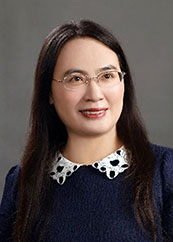
|
|
Session: Impact of contaminants on microbial
diversity and function
Dr. Stéphane Pesce
French National Institute for Agriculture, Food and Environment (INRAE), France
Dr. Stéphane Pesce is Senior Researcher (Director of Research) and Group leader for the research group on Aquatic Microbial Ecotoxicology, at INRAE. His group studies the interactions between benthic microbial communities and the chemical contaminants to which they are exposed in aquatic ecosystems (trace elements, pesticides, pharmaceuticals, etc.). The research carried out combines microcosm experiments and in situ surveys to provide knowledge and develop innovative tools and approaches to 1/describe how micropollutants affect the vulnerability and resilience of benthic microbial biodiversity and associated ecological functions in a context of multiple stresses, and 2/ evaluate the ecological quality of contaminated aquatic ecosystems through the study of natural periphytic and sediment microbial communities. Stéphane Pesce is one of the co-founders of the EcotoxicoMic network, created in France in 2013.
|
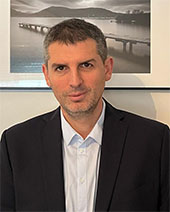
|
|
Session: Microbial roles in contaminant fate
and bioremediation
Prof. Hans Peter Heinrich Arp
Norwegian University of Science and Technology & Norwegian Geotechnical Institute, Norway
His research interests intersect fundamental and applied aspects related to pollutants in the environment. On the fundamental level, he is interested in how different types of pollutants, such as microplastics, PFAS, PAHs, POPs and metals behave in the environment. On the applied level, he uses this fundamental knowledge to design solutions within the context of emerging technologies and policy mechanisms, such as REACH and the circular economy, to create a zero pollution society.
|
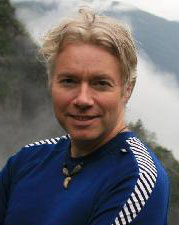
|
|
Session: Microorganisms as a tool for
environmental risk assessment
Prof. Thomas Backhaus
RWTH-Aachen University, Germany
He is the chair of Ecotoxicology and Environmental Risk Management. Thomas Backhaus's main research interest is the toxicology and ecotoxicology of chemical mixtures and its regulatory assessment. In this context, he has been working with several regulatory authorities in Europe and elsewhere. Additional research interests include the environmental assessment of emerging pollutants (e.g. pharmaceuticals, veterinary drugs, biocides, nanoparticles) and the substitution of hazardous chemicals. He is currently co-leading the risk characterization work of the OECD project on combined exposures and OSPARs intersessional communication group on cumulative stressors.
|
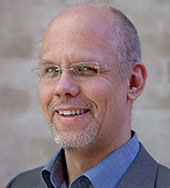
|
|
Session: Antimicrobials resistance in the environment
Assoc. Prof. Monika Dolejska
University of Veterinary Sciences Brno; University Hospital Brno, Czech Republic
She is an expert on molecular epidemiology and comparative genomics of antibiotic resistant Gram-negative bacteria with a special focus on clinically important resistance mechanisms to cephalosporins, carbapenems and colistin transferrable by plasmids. Using cutting-edge molecular techniques her studies recognized novel reservoirs and potential vehicles of multi-drug resistant bacteria in the environment and wildlife, especially in wild birds and waste waters. She described the role of particular wildlife species in context to their behaviour and ecology in the carriage and transmission of antimicrobial resistance. She utilizes the collaboration with clinicians, veterinarians and environmental biologists, emphasizing the importance of One Health concept when studying antibiotic resistance. Recently, she focuses on the co-evolution of pathogenic Escherichia coli strains and their plasmids with the aim to reveal the features staying behind the successful dissemination of high-risk clones.
|
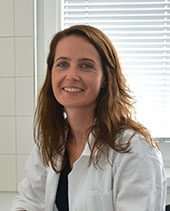
|
|
Special Session: Microbiome-aware ecotoxicology
of animals
Prof. Elena Gorokhova
Dept of Environmental Science, Stockholm University, Sweden
Her research program focuses on the stress and adaptations in aquatic organisms and on the development of methods to measure it and understand the ecological and evolutionary mechanisms involved. We combine elements of molecular ecology, physiology, and informatics with long-term monitoring in the Baltic Sea to understand the wide range of environmental stressors in the environment. Through ecotoxicology and modeling, we also aim to understand the adverse impacts on the environmental status and develop indicators to measure these impacts.
|
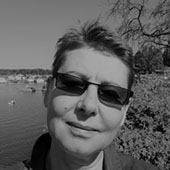
|
|
Special Session: Occurrence, properties, fate,
and microbial ecotoxicology of natural toxins
Prof. Hans Christian Bruun Hansen
University of Copenhagen, Denmark
The overall theme of the research group (4 professors, 2 lab techs, 7 PhD students, 2 post-docs) is soil and water biogeochemistry with focus on pollutant fate processes at the molecular level. This insight feeds into research and innovation on sustainable pollutant remediation technologies, resource recycling, risk assessment, soil and water cleaning, and modelling. Since 2017 research on plant-produced toxins/biologicals (NaToxAq), biochar-catalysed pollutant degradation and remediation, iron oxide redox dynamics and ecosystem functions, phosphorus release and capture, organic pollutant sorption and advanced oxidation/reduction, and heavy metal immobilization have made up more than 80 % of our research activities. Our research on natural toxins taps in with research on new crops as part of the foodshift paradigm as well as exploration and fate of plant derived biopesticides such as saponins. The research group teaches 7 courses in soil, water, and environmental chemistry from BSc to MSc level.
|
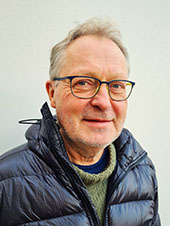
|
|
